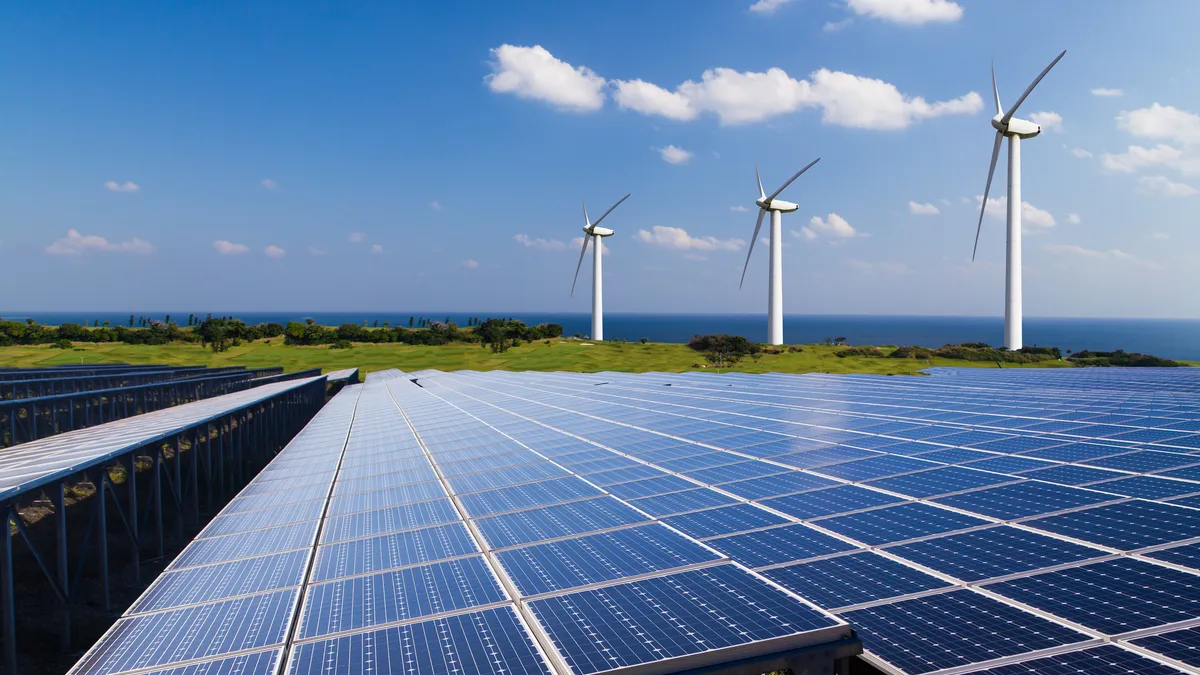Dive Brief:
- After a year-long trial with Google, LevelTen Energy plans to open a standardized power purchase agreement bidding process it calls LEAP, or LevelTen Energy’s Accelerated Process, to all buyers on its platform this week.
- LEAP combines the conventional requests for proposal and PPA processes into a single step by providing buyers with a model contract based on current market conditions.
- According to Google, using the LEAP contract has cut PPA negotiation time by 80%, allowing the company to open bids on four RFPs in a single year. “We have never seen anything this fast,” said Amanda Peterson Corio, global head of data center energy for Google, adding that Google would use LEAP for most of its renewable energy RFPs going forward.
Dive Insight:
Though they had hoped to speed up the PPA process, Corio said Google wasn't sure what to expect a year ago when they began working with Google to develop a standardized PPA contract. It was unclear whether the industry was ready to change a process in place since the company helped pioneer some of the world's first power purchase agreements to drive deployment of clean energy.
“We thought if we got one participant, that would be great,” Corio said. “It's a testament to where we are for the evolution of building and developing more clean power that [LEAP] has been so successful.”
Negotiating a PPA is conventionally a four-phase process, starting with the initial RFP and progressing through multiple rounds of responses, shortlists and term sheet negotiations, according to Rob Collier, vice president of the energy marketplace at LevelTen. That process can span 10-12 months, and in recent years has contributed to a growing trend of deals falling through during the negotiating process.
The vision for LEAP, he said, was to take that final step and move it to the front of the process by providing buyers with a set of common terms to include in their initial RFP. That in turn would allow sellers to respond quickly with their price, project details and conditions.
Google launched its first RFP using the process last fall, when it became the first buyer on the LevelTen platform with access to the LEAP process. Since then Google has completed two additional rounds of LEAP bids, with a fourth RFP posted on Sept. 7, Corio said.
“I can't begin to tell you how amazing that is, having been in the industry for 20 years,” she said. “We are at the point now that this is how we plan to continue to do this going forward, because it is meeting our needs and it is so successful.”
The process also benefits energy developers, who can chose from preset “elections” in the LEAP contracts to maintain flexibility on issues such as project timelines.
“It was a huge advantage for us to be able to reduce the current market uncertainty and move from the RFP stage to having a PPA ready for signature in a matter of weeks,” Duarte Bello, COO of EDP Renewables for Europe and Latin America, said in a statement. “By being able to secure PPAs for more projects in less time, we can build our portfolio of clean energy projects faster.”
The LEAP process does require that buyers come to market with all the internal approvals needed to advance a project immediately after a bid is selected, Corio said. This means more work upfront by the buyer to understand how much risk they are willing to take, she said, but eliminates “months” of committee meetings later in the process. It also, Collier noted, doesn't directly address delays caused by interconnection or siting issues — though it does allow sellers to indicate if they have those authorizations in hand so that buyers can decide whether they want to wait out the queues.
By using a standardized process going forward, Corio said, Google should be able to free up more bandwidth to focus on the next stages of its energy transition.
“What this process is really good for is traditional PPAs that the industry has done over and over,” she said. “We're going to need new technologies and combinations of technologies and products ... 24/7 clean energy is still a nascent area.”














